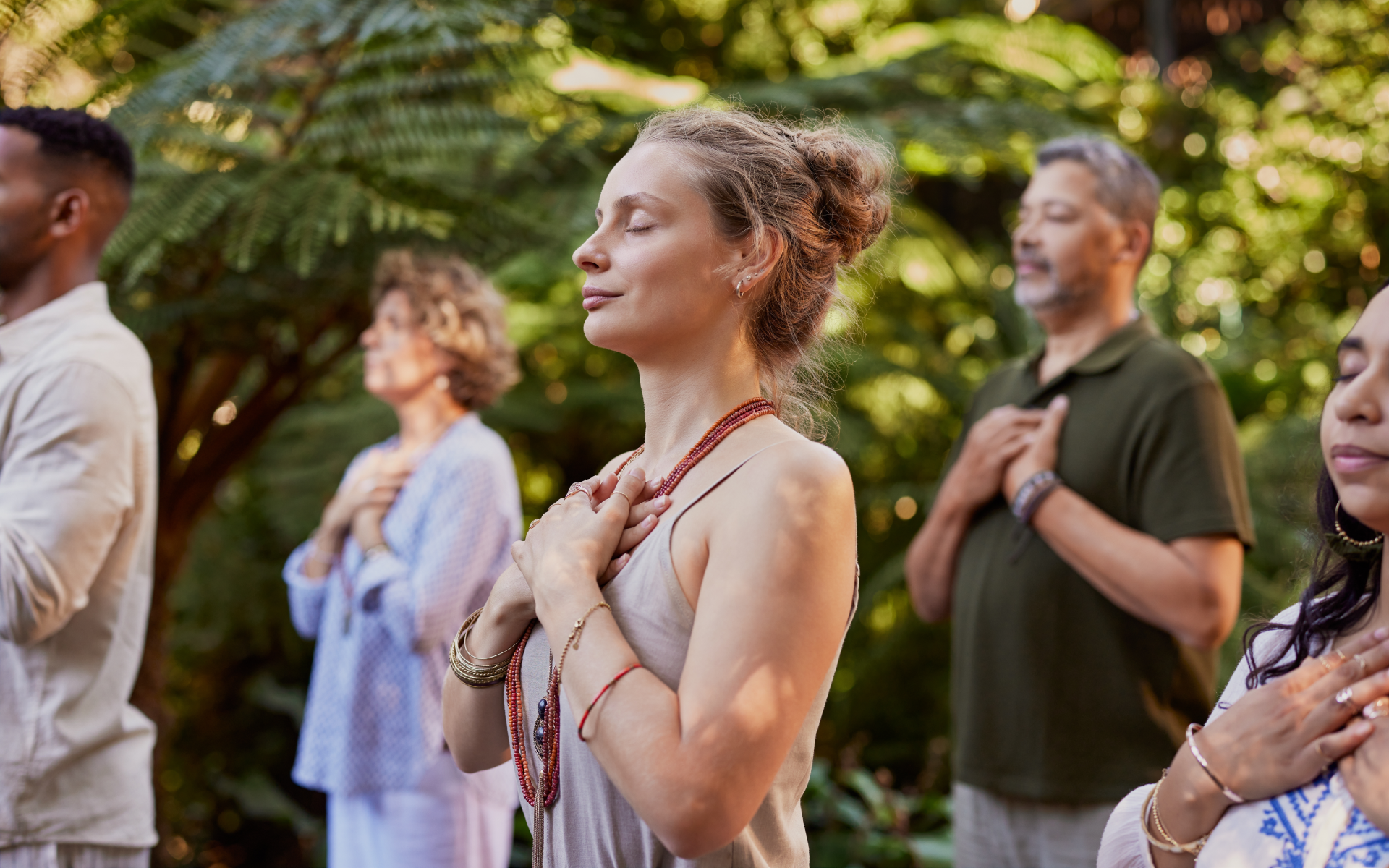The Substance Abuse and Mental Health Services Administration has reported that more than two-thirds of children in the United States experience a traumatic event before their 16th birthday (10).
In these developmental years, such experiences can be deeply imprinted on a person’s psyche, shaping how they perceive the world. When these traumatic events go unresolved, they can manifest in adulthood as fear, anxiety, depression, and other mental health issues.
Adults who are grappling with the aftereffects of childhood trauma often struggle with mental health symptoms, not realizing the origin of their emotional struggles. Understanding the connection between past trauma and present behavior is the first crucial step toward healing.
A trauma-focused approach can help adults navigate these complex emotions, unravel the impact of their experiences, and reclaim control over their lives.
Here’s what you need to know about dealing with childhood trauma as an adult.
What Are The 5 Childhood Traumas?
The 5 childhood traumas, also known as Adverse Childhood Experiences (ACEs), are physical, emotional, or sexual abuse, neglect, and household dysfunction such as witnessing domestic violence or substance abuse (1).
Beyond the 5 ACEs, there are other types of childhood trauma, including bullying, medical trauma, natural disaster, refugee trauma, and community violence (10).
The National Child Traumatic Stress Network notes that the more ACEs a person has experienced, the greater their risk for developing mental and physical health problems later in life (5).
This increased risk is mainly attributed to the vulnerability that adversity creates in someone.The more vulnerable someone is, the less likely they may be to cope with daily stress. Therefore, there is an increased risk for mental health concerns (5).
It’s important to recognize that childhood trauma in this context is not limited to a single event or experience, but refers to ongoing adverse experiences during this critical developmental stage. For example, being repeatedly exposed to neglect or witnessing domestic violence is a form of developmental trauma.
Whether you want to learn how to exit the spiral of self-harming behavior, overcome anxiety, cure insomnia or simply give yourself the time and space to bliss out and soak up the moment of complete peace and quiet – BetterMe: Meditation & Sleep app is exactly the tool for that ! If you don’t take care of number one, who will?
Breaking the Silence
One of the biggest challenges for adults who are dealing with childhood trauma is breaking the silence. For many survivors of childhood trauma, there is a strong sense of shame and guilt that surrounds their experiences. This can make it incredibly difficult for them to open up and seek help.
However, breaking the silence is an essential step on the road to healing. It may allow individuals to process and validate their experiences.
Why Is Childhood Trauma So Painful?
Childhood trauma is so painful because it can fundamentally disrupt a person’s sense of safety and security, their identity, and the way they relate to others.
During childhood, our brains are still developing and forming connections that shape the way we perceive the world. When traumatic events occur during this critical time, these connections can be altered and this affects how we respond to stress and adversity in adulthood (3).
As a result, the person may be left feeling as if they are in permanent danger. This is because once they go through a traumatic experience that they cannot process on their own, their brains turn on the ‘danger signals’, which results in emotional and physiological dysregulation.
In addition, childhood trauma often involves betrayal by trusted adults or caregivers, which can lead to feelings of abandonment, mistrust, and difficulty forming healthy relationships. These emotional wounds can be particularly difficult to heal without proper support from licensed mental health professionals.
Does Childhood Trauma Get Worse As You Get Older?
It is difficult to state whether childhood trauma becomes better or worse as you get older. It is dependent on the severity and frequency of the traumatic experiences and the individual’s coping mechanisms and personal strengths, such as resilience (6).
Some individuals may be able to manage their symptoms better as they mature and gain more insight into their past experiences, while others may struggle more as they face new challenges and triggers during adulthood. However, it is important to address trauma with the help of a professional (11).
How to Deal With Childhood Trauma in Adulthood
Dealing with childhood trauma in adults starts with acknowledging the impact of past experiences and seeking professional help from a licensed mental health professional. A trauma-informed therapist can guide individuals through the healing process and provide a safe space to explore and process their emotions.
A trauma-focused approach recognizes the role of past traumas in current struggles and focuses on building coping skills and resilience.
This may involve techniques such as cognitive-behavioral therapy, eye movement desensitization and reprocessing (EMDR), mindfulness practices, and coping skills (7).
Read more: What Childhood Trauma Do I Have?
How To Begin To Deal With Childhood Trauma?
To heal from childhood trauma it is recommended to seek help from a licensed mental health professional to get to the root of the problem and address underlying issues.
You can start by creating enough space in your life to reflect on your reactions, observe your patterns, and change how you react to stressful situations.
Follow the below steps to start your healing journey:
Ground Yourself in the Present
When you feel overwhelmed or triggered, it’s important to ground yourself in the present moment. Unless you’re in immediate danger, you should remind yourself that you are safe and secure in the present.
Take a deep breath and focus on your senses – what can you see, hear, touch, smell, or taste? What emotions are you feeling in your body? Feel the ground beneath your feet and take comfort in this present moment.
Our blog on Breathing for Focus has tips on how to use your breath as a grounding tool.
Feel Your Emotions
Allow yourself to feel whatever emotions arise as you recall the traumatic experience. It’s okay to cry, be angry, or feel scared. These are natural reactions to what happened. Don’t try to suppress or ignore them. Instead, allow them to flow and release them.
As a child, you may have been taught to hide your emotions or even not express them at all. It’s important to unlearn these behaviors and allow yourself to fully feel and process your emotions.
Validate Your Experience
It’s common for childhood trauma survivors to doubt their experiences or minimize their impact.
This can be due to gaslighting or invalidation by others, in addition to internalized shame and guilt. However, it’s important to validate your experience and acknowledge the pain and suffering you endured.
You should remind yourself that what happened to you was not your fault and that it is completely valid for you to feel the way you do. You deserve compassion and understanding from yourself and others.
Explore the Message
It can be helpful to explore the message behind the traumatic experience. What beliefs or thought patterns did you develop as a result of this experience?
How do they still affect your life today? By understanding these underlying messages, you can start challenging and reframing them into healthier and more empowering beliefs.
Let It Go
Finally, it’s important to let go of any guilt or shame that surrounds your childhood trauma. This is easier said than done and often comes with time and processing with a mental health professional
These emotions may have served as protectors in the past, but now they no longer serve you. You must recognize that healing is a process and allow yourself to move forward without carrying the weight of these negative emotions.
It’s important to note that while these coping strategies may provide temporary relief, they are no substitute for professional therapy. Trauma is complex and requires specialized treatment to fully heal and move forward in a healthy way.
Our blog on the Benefits of Breath Work has additional resources for managing stress and emotional well-being.
With stress being a constant presence in our lives, taking time to process emotions, decompress and get into the right frame of mind is absolutely crucial. With BetterMe: Meditation & Sleep app your mental health is in good hands! Start using it now!
What Happens If You Don’t Heal Childhood Trauma?
If you don’t heal from childhood trauma, it can continue affecting your mental and physical health during adulthood. Unresolved trauma can lead to a range of issues, such as:
Mental Health Disorders
Unresolved childhood trauma can lead to mental health disorders (9).
These disorders are not only distressing, but they can also affect various aspects of an individual’s life, including their relationships, work performance, and physical health.
Difficulty Managing Emotions
Childhood trauma can make it difficult to regulate emotions and cope with stress. This can result in outbursts of anger, difficulty expressing emotions, and a general sense of feeling overwhelmed.
Difficulty Forming and Maintaining Healthy Relationships
Unhealed trauma can hamper an individual’s ability to form and maintain healthy relationships. They may find it difficult to trust others or develop unhealthy coping mechanisms, such as avoidant behavior or codependency. This can lead to feelings of isolation and loneliness, which can further exacerbate their mental health issues.
Poor Physical Health
Physical health can also be adversely affected by unresolved childhood trauma. Studies have found there to be a connection between unaddressed childhood trauma and long-term health issues such as heart disease, diabetes, and obesity (2).
According to the Centers for Disease Control and Prevention (CDC), individuals with high Adverse Childhood Experiences (ACEs) scores are twice as likely to develop heart disease as those with zero ACEs (1).
Our blog on 28-day Somatic Exercise for Trauma Relief shares gentle exercises that can help release tension and promote healing.
Substance Abuse
A failure to address childhood trauma can also result in issues with substance abuse. Some individuals may turn to alcohol or drugs as a means of coping with their trauma, which can lead to addiction (9).
This can have severe consequences on both health and life circumstances, potentially resulting in legal troubles, financial issues, and further strain on their relationships.
Read more: Healing Childhood Trauma Methods That Really Work
FAQs
Do you ever fully heal from trauma?
Yes and no. Healing from trauma is not about forgetting or erasing the traumatic event, but learning to live with it and managing the impact it has on your life.
This process is different for everyone and it may take a significant amount of time. Some people may never be able to say that they’re completely free from the effects of their trauma, but with professional help and self-care, they can manage the symptoms and lead fulfilling lives.
How do you process trauma without therapy?
Therapy is highly recommended for processing trauma, and while there are several self-care strategies, it is best to seek ways to get professional help. For example, look into local community centers to check if they provide low-cost or free therapy.
Deep breathing exercises, regular physical activity, a balanced diet, and good sleep hygiene can help with the management of symptoms.
Mindfulness practices and grounding techniques can provide immediate relief during moments of high stress.
Journaling can also be beneficial, as this allows you to express your feelings and thoughts in a safe, private space. It might be better to hide or lock up your journal to make sure no one reads it without your permission.
You could also build resilience to cope with trauma symptoms by establishing safe relationships, which can act as a support system. A therapist can help people with trauma understand what safe relationships look like.
However, it’s important to remember that these techniques should not replace professional help, particularly in cases of severe trauma.
The Bottom Line
Dealing with childhood trauma as an adult can be complex and challenging. However, it is important to recognize the effects of unresolved trauma and take steps toward healing.
Seeking therapy, building a strong support system, and practicing self-care can all be helpful on this journey toward reclaiming control over your life. It’s important to remember that it’s never too late to start healing and breaking the silence that surrounds childhood trauma.
DISCLAIMER:
This article is intended for general informational purposes only and does not serve to address individual circumstances. It is not a substitute for professional advice or help and should not be relied on for making any kind of decision-making. Any action taken as a direct or indirect result of the information in this article is entirely at your own risk and is your sole responsibility.
BetterMe, its content staff, and its medical advisors accept no responsibility for inaccuracies, errors, misstatements, inconsistencies, or omissions and specifically disclaim any liability, loss or risk, personal, professional or otherwise, which may be incurred as a consequence, directly or indirectly, of the use and/or application of any content.
You should always seek the advice of your physician or other qualified health provider with any questions you may have regarding a medical condition or your specific situation. Never disregard professional medical advice or delay seeking it because of BetterMe content. If you suspect or think you may have a medical emergency, call your doctor.
SOURCES:
- Adverse Childhood Experiences (ACEs) (2019,cdc.gov)
- Adverse Childhood Experiences and Cardiovascular Risk among Young Adults: Findings from the 2019 Behavioral Risk Factor Surveillance System (2023,nih.gov)
- Childhood Maltreatment and its Role in the Development of Pain and Psychopathology (2023,nih.gov)
- Childhood trauma can lead to physical and cognitive impairments in old age (2023,news-medical.net)
- EFFECTS (n,d,nctsn.org)
- Effects of positive and negative childhood experiences on adult family health (2021,bmcpublichealth.biomedcentral.com)
- Recognizing and Treating Child Traumatic Stress (2023,samhsa.gov)
- The Impact of Adverse Childhood Experiences on Adolescent Health Risk Indicators in a Community Sample (2021,nih.gov)
- The cost of unresolved childhood trauma and abuse in adults (2015,pc.gov.au)
- Understanding Child Trauma (2023,samhsa.gov)
- Toward an Integrative Theory of Self-Identity and Identity Stressors and Traumas and Their Mental Health Dynamics (2019,scirp.org)










